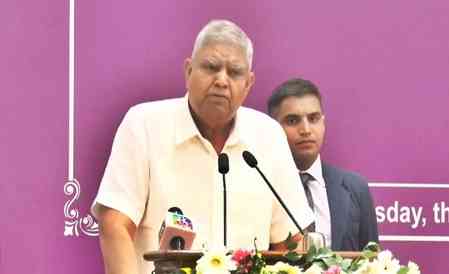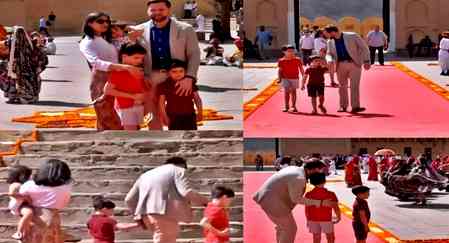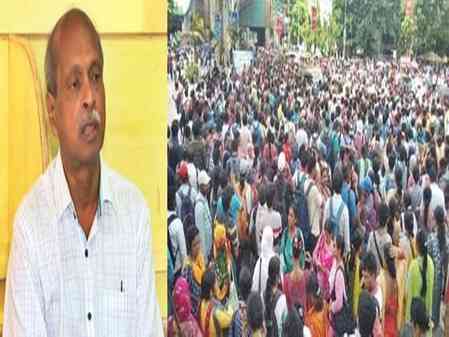'Parliament is supreme, no authority above it', Jagdeep Dhankhar’s fresh remarks amid judicial overreach debate
Amid the ongoing heated debate over ‘judicial overreach’ in the country, Vice President Jagdeep Dhankhar on Tuesday reiterated his remarks that ‘Parliament is supreme’ and there is no authority above it as per the Constitution.

New Delhi, April 22 (IANS) Amid the ongoing heated debate over ‘judicial overreach’ in the country, Vice President Jagdeep Dhankhar on Tuesday reiterated his remarks that ‘Parliament is supreme’ and there is no authority above it as per the Constitution.
Addressing the students of Delhi University at an event in the city, V-P Jagdeep Dhankhar said, “Elected representatives are the ultimate masters as to what the Constitution content will be. There is no visualisation in the Constitution of any authority above the Parliament.”
“Parliament is supreme, and that being the situation, let me tell you, it is as supreme as every individual in the country," he further said.
“Public representatives are severely accountable on occasion, through elections. A Prime Minister who imposed an Emergency was held accountable in 1977. Democracy is for the people, and it is a repository of safeguarding it,” Vice President said while addressing the event.
“For any democracy, every citizen has a pivotal role. I find it inconceivably intriguing that some have recently reflected that constitutional offices can be ceremonial or ornamental. Nothing can be far distanced from a wrong understanding of the role of everyone in this country, constitutional functionary or a citizen. According to me, a citizen is supreme because a nation and democracy are built by citizens. Every one of them has a role!” he further told the students.
Dhankhar’s remarks are set to ignite fresh debate over the ‘supremacy of power’ between the Judiciary and the legislature.
Just days ago, the Vice President lashed out at the judiciary stating that judges were acting as ‘super-Parliament' and without any accountability.
Dhankhar’s fierce attack on the functioning of courts followed a ruling by the Supreme Court, where the latter called for the Presidents and Governors to decide on the bills and legislations within a limited timeframe.
He had said that there couldn’t be any situation where the courts start giving directions to the President.


 IANS
IANS 










